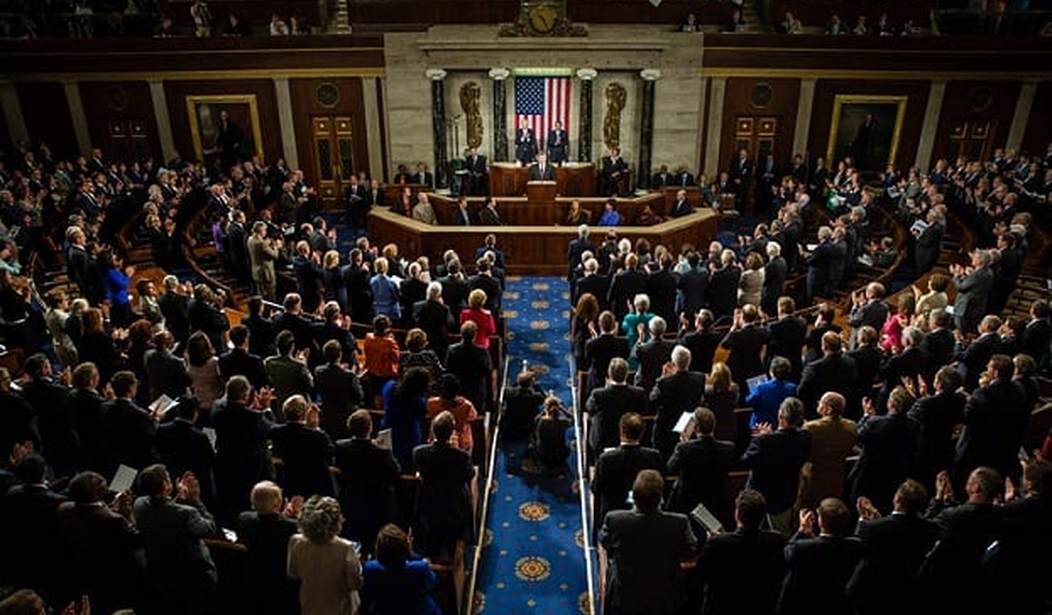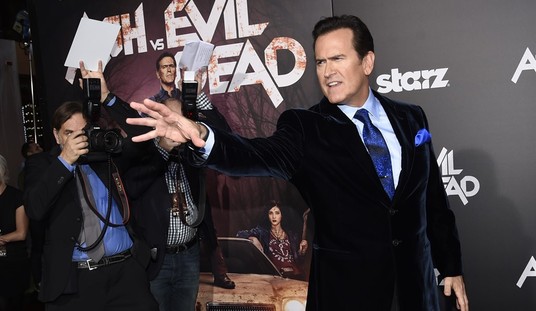In the 1967 move, Guess Who’s Coming to Dinner, liberal parents have the depths of their liberalism plumbed when their daughter brings home a black man as her fiance. According to Cass Sunstein, political identity is now a more potent organizing force in society than racism:
Researchers have long asked such questions about race, and have found that along important dimensions, racial prejudice is decreasing. At the same time, party prejudice in the U.S. has jumped, infecting not only politics but also decisions about dating, marriage and hiring. By some measures, “partyism” now exceeds racial prejudice — which helps explain the intensity of some midterm election campaigns.
In 1960, 5 percent of Republicans and 4 percent of Democrats said that they would feel “displeased” if their son or daughter married outside their political party. By 2010, those numbers had reached 49 percent and 33 percent. Republicans have been found to like Democrats less than they like people on welfare or gays and lesbians. Democrats dislike Republicans more than they dislike big business.
Would you want your son or daughter to bring home a liberal Democrat to be your future in-law and parent of your grandchildren? Think about if for a second.
The two poles in the discussion are the epitome of the “no label” crown, David Brooks, and the man who has done more than any other pundit to poison political discourse in America, Jonathan Chait.
In Brooks’ view, judging people based on their politics (or just about any other criteria) is wrong. To give you an idea of Brooks’ self awareness you need to read the opening to his essay:
A college student came to me recently with a quandary. He’d spent the summer interning at a conservative think tank. Now he was applying to schools and companies where most people were liberal. Should he remove the internship from his résumé?
I advised him not to. Even if people disagreed with his politics, I argued, they’d still appreciate his public spiritedness. But now I’m thinking that advice was wrong. There’s a lot more political discrimination than I thought. In fact, the best recent research suggests that there’s more political discrimination than there is racial discrimination.
I hope that no one ever asks Brooks for his advice again or, failing that, someone sues him for mal-advisory or something.
There are several reasons politics has become hyper-moralized in this way. First, straight moral discussion has atrophied. There used to be public theologians and philosophers who discussed moral issues directly. That kind of public intellectual is no longer prominent, so moral discussion is now done under the guise of policy disagreement, often by political talk-show hosts.
Second, highly educated people are more likely to define themselves by what they believe than by their family religion, ethnic identity or region.
Third, political campaigns and media provocateurs build loyalty by spreading the message that electoral disputes are not about whether the top tax rate will be 36 percent or 39 percent, but are about the existential fabric of life itself.
The problem is that hyper-moralization destroys politics. Most of the time, politics is a battle between competing interests or an attempt to balance partial truths. But in this fervent state, it turns into a Manichaean struggle of light and darkness. To compromise is to betray your very identity. When schools, community groups and workplaces get defined by political membership, when speakers get disinvited from campus because they are beyond the pale, then every community gets dumber because they can’t reap the benefits of diverging viewpoints and competing thought.
This mentality also ruins human interaction. There is a tremendous variety of human beings within each political party. To judge human beings on political labels is to deny and ignore what is most important about them. It is to profoundly devalue them. That is the core sin of prejudice, whether it is racism or partyism.
The personal is not political. If you’re judging a potential daughter-in-law on political grounds, your values are out of whack.
Let’t hold this in abeyance because even though Brooks makes some good points, he, unsurprisingly comes to a conclusion that shows you just how impressed he can be by pair of impeccably creased men’s pants.
Jonathan Chait takes the opposite tack. Chait, who in addition to avowing his personal hatred for a man he never met has labeled anyone opposing Obama a racist, is on his home turf.
It’s okay to judge people’s political values. It’s not like the sports team you root for or even (exactly) like a religion, where you are mostly born into your loyalty. Politics expresses moral values.
That is precisely the attitude that troubles Brooks, who complains that “political life is being hyper-moralized.” If you want to argue that partisanship is ruining American society via hypermoralization, consider some of the ways American political life has changed since the 1960s. It is true that, 50 years ago, hardly anybody objected to their child marrying outside their party. That is because the parties lacked ideological cohesion. The 1960s were when my liberal Democratic mother met and married my liberal Republican father. Their opposing voting habits did not create problems because they disagreed very little about policy. They’re both liberal Democrats now.
American politics may have been much less partisan in the 1960s, but it was not lacking in hypermoralization. Indeed, it was far more violent. You had white supremacists murdering civil-rights activists in Mississippi, police brutalizing protestors in Chicago, and construction workers beating up hippies in New York City. That angry, hypermoralized politics took place outside of, or within, parties rather than between them.
There are millions of Americans who think it’s okay to deny legal citizens their voting rights or force them to go without health insurance. Those people live in a different moral universe than I do. They’re not necessarily bad people. (Lord knows the people who agree with me on those things are not all good.) But, yes, I believe their political views reflect something unflattering about their character.
Unlike race and ethnicity, politics are a matter of choice. Much more than religion, which is increasingly a choice rather than a patrimony, you make a series of judgments, intellectual or visceral, to arrive at set of political beliefs. It is natural, therefore, that why we choose our employees, our friends, and our in-laws to reflect those values. As Brooks correctly notes, as the role of religion has decreased in society the role of partisan politics has increased. Religion has never carried the flash point in America (I guess by “never” I mean since at least the post Civil War era) that it does in Europe because absent an established church there was no political downside to adhering to most any religion you wished and, absent the political component, the philosophical outlooks of the various parts of the Judeo-Christian tradition are remarkably similar.
While we might be willing to accept a level of dissent from those values in casual acquaintances and employees (but, really, would you hire someone who had been an officer in a liberal student organization or whose Facebook page boasted of their time with Occupy Wall Street?) but are we willing to invite into our homes and our inner circle people who hold values inimical to ours and whom, ultimately, you cannot trust to keep your confidences because, as Sunstein, Brooks, and Chait agree, politics exerts a tribal pull in modern society that isn’t tempered by blood or bond. Would someone, like Chait, who views the common justice of ensuring that only actual voters vote and believe that is is fine for the government to take that which you have earned and give it to someone Chait thinks is more deserving, hesitate in harming your employment regardless if you were an in-law or considered him a friend? Did friendship preclude Damon Linker, from using his position as editor at First Things and friend of Father Richard John Neuhaus to gather material to write a book betraying both employer and friend in the service of secular liberalism? No. You enter into intimate friendships with people of different beliefs with the expectation that, when the opportunity presents itself, they will cheerfully betray you because you are wrong thinking. Or, as Chait says, there is “something unflattering” about your character. And here Chait really has the best of the argument. Brooks holds that what is “most important” about an individual is different from their politics. While we disagree on the specifics of desirable qualities, Chait view is that your politics are a reflection of your character because, as someone sorta well known in certain circles once said, “You will know them by their fruits.”
Ultimately, as sentient beings we are free to use whatever metric we wish in deciding who we consider friends and whom we would welcome into our families. No one. No one has any right to vote or even express an opinion on your choices.














Join the conversation as a VIP Member